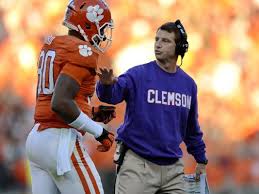The following article by Jillian Bergsma, a writer and contributing editor for Independent Publisher, appears in the current issue of the Independent Publisher Newsletter. I think it’s worth repeating in its entirety.

Jillian Bergsma
“A few months ago I received an interesting question from an Independent Publisher reader: “Who defines [book] quality these days?” In today’s publishing landscape, we’ve seen a dramatic shift in who owns the power to say a book is good, bad, or just okay. For a long time, a writer had to be vetted by so many people: a literary agent, the editor or publisher, the copyeditor, the proofreader, the reviewer, the bookseller or librarian, and then—finally—the reader.
“But now many self-published authors cut out most or all of those middlemen, going straight to the consumer. . . . So without the horde of literary mavens between an author and a reader, who does define the quality of a book?
“The question has several answers. Let’s start with those aforementioned mavens who are often left out of the equation. Thousands of writers still submit to agents and publishing houses each year. There’s a certain prestige associated with traditional publishing, and for good reason. You get a team of people to get your book into the best shape possible; you don’t have to pay the out-of-pocket costs to get the book on the market; and you have professionals selling your work.
“However, for a lot of aspiring authors, rejections from agents and publishers become the norm. Some folks say it takes scores of queries before you’re likely to find the right match (see Chuck Sambuchino’s article “Don’t Give Up Until You’ve Queried 80 Agents or More”). As harsh as the rejections can sometimes seem, they aren’t usually unfounded. Some rejections are on a taste basis—an agent or publisher just doesn’t connect with the material or think it would be right for their list. To each their own. But sometimes a rejection letter will come back that can give valuable feedback to a writer. Perhaps the level of writing wasn’t strong enough, the characters not fully developed, the plot too similar to a blockbuster book already in the market. In these ways, agents and publishers still serve a vital role in determining the quality of books in the marketplace. They know their stuff, so if you’re lucky enough to get more than a form response back, take the advice they give and put it to use.
“Booksellers and librarians are another group that can fall by the wayside if you’re self-publishing, which may be even more devastating than the loss of agents and publishers. The folks working in your local indie bookshop or at the town library are incredible resources and often have incredible taste. These days especially they must be extremely selective when choosing books for their shelves—books are expensive, shelf space is ever shrinking, and readers may be more likely to download a $0.99 ebook than to spring for the $26.99 hardcover.
“Booksellers and librarians have long been the real touch point for readers—before you could look up the ratings on Amazon, you needed your librarian to give you recommendations on which mystery novel to read next. So if you do have the opportunity to connect with your local library or bookstore, do it. Their responses to a book can be invaluable, even if that response isn’t the one you are looking for.
“The next category of gatekeepers includes bloggers and reviewers—opinions from other readers who aren’t directly in the line of producing or selling books. With the rise in social media, these folks are becoming bigger players in the game. Many of us follow a handful of favorite blogs penned by fellow readers who will tell us if a book is wonderful or a waste of time. For most people, the logo on the spine of the book doesn’t matter nearly as much as the opinion of someone we trust. And of course there are certain established reviewing outlets (think New York Times, etc.) that can turn us on or off a book in a matter of a few sentences. More than ever, these third-party reviews are gaining power in determining the quality of a book.
“And finally: THE READER. I have to say that the reader is the most influential person in determining the quality of a book. And perhaps that is how reading was always meant to be. What does it really matter if your best friend or your boss or a publisher you’ll never meet loves or hates a book? What matters is that you do. In the publishing cycle, the reader is the customer, and how does that age-old adage go? The customer is always right.
“Okay,” you say. “Sure, the reader is the most important. But what power do they really have beyond buying and selling books? How can they influence what gets published in the first place?”
“Having worked in publishing for several years, I can tell you that the reader is more powerful than they know. Editors routinely check Goodreads, Amazon, and blogs to look at what people are responding to in terms of writing style, characters, covers, and genres. Some publishers, like Amazon, are even introducing programs such as Kindle Scout, where readers decide which books are worthy of publication.
“So yes, at the end of the day, the reader holds the best hand. The publishing business wouldn’t be very successful if we didn’t understand how important our end-users really are, but today more than ever we are able to benefit from the thoughts and opinions of readers. Of course, the people I’ve discussed up until now—the agent, the publisher, the bookseller, the librarian, the reviewer, the blogger—are all readers too. And they want you, another reader, to enjoy or despise a book just like they do. At the end of the day, we’re all after the same thing here: a great read. “



